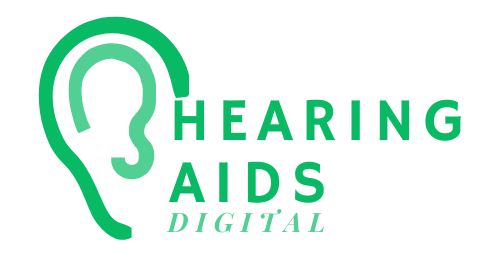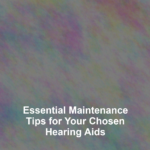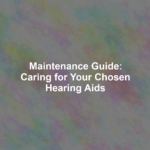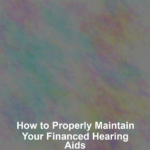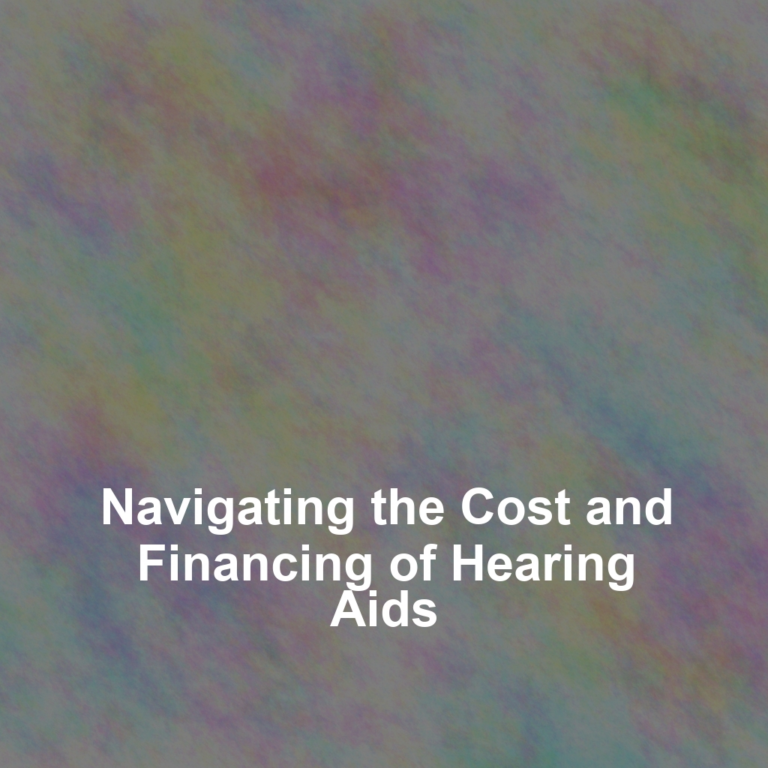YouG??ve invested in a set of hearing aids so advanced, they could probably do your taxes if they werenG??t so busy enhancing your auditory experience.
But as you navigate the complexities of modern life with this sophisticated technology nestled in your ears, itG??s crucial to remember that even the most advanced devices need a little tender loving care to perform at their best.
YouG??re already on the right track by looking into how to maintain your hearing aidsG??after all, proper upkeep can be the difference between crystal-clear sound and an unexpected silence during lifeG??s big moments.
As you consider the myriad of maintenance tips and tricks out there, youG??ll find that some are crucial for longevity, while others might just save you a trip to the specialist.
So, letG??s explore the simple yet effective ways you can ensure your hearing aids remain as dependable as your favorite pair of jeans, and why skipping these steps could leave you missing out on more than just the fine print.
Daily Cleaning Techniques
To ensure your hearing aids function optimally, itG??s crucial to adopt a routine for daily cleaning. Start by gently wiping the surface with a dry, soft cloth to remove earwax and debris. DonG??t use water, solvents, or alcohol, as these can damage the electronics. Hold the device with the opening facing downward so any loose particles fall away rather than getting lodged inside.
Each night, when youG??ve taken your hearing aids out, brush the microphone ports and openings with a soft-bristled brush. This can often be found in a cleaning kit provided by your audiologist. Be careful not to force any debris into the openings.
Inspect the earwax filter or guard; if itG??s clogged, replace it. Most hearing aids come with replacements and a tool to easily change them. If your model has ear domes, detach them and clean them separately. Use a mild soap and warm water for the domes, but ensure theyG??re completely dry before reattaching.
Moisture Management Strategies
Managing moisture is vital for keeping your hearing aids in top working condition. Humidity, sweat, and even just the natural moisture from your ear can damage the delicate components of your devices. To protect them, youG??ll want to adopt some solid moisture management strategies.
First, make it a habit to wipe down your hearing aids every night with a dry, soft cloth. This removes any moisture thatG??s accumulated throughout the day. If youG??re someone who sweats a lot or lives in a humid climate, consider using a hearing aid dehumidifier. These handy devices are designed to draw out moisture while you sleep, so youG??ll wake up to dry, functioning aids.
Be cautious with where you store your hearing aids. Avoid leaving them in the bathroom during showers or baths, as the steam can seep into the devices. Instead, keep them in a dry area. You might even add a silica gel pack or another desiccant in your storage case to help absorb any excess moisture.
Battery Care and Replacement
While keeping your hearing aids dry is essential, itG??s equally important to regularly care for and replace their batteries to ensure optimal performance. YouG??ll find that most hearing aids use either disposable or rechargeable batteries. If yours use disposable ones, youG??ve got to keep track of their lifespan to avoid sudden power loss. Remember, batteries can drain faster depending on usage and the hearing aidG??s features.
HereG??s a tip: wait a few minutes after removing the tab to let the battery G??breatheG?? before inserting it into your device. This simple step can extend the batteryG??s life. Store your spare batteries at room temperature, away from coins and keys to prevent accidental discharge.
For rechargeable batteries, charge them nightly. ItG??s just like your smartphone; make it part of your daily routine. But keep an eye on their overall capacity. After a year or so, you might notice they donG??t hold a charge as well. ThatG??s your cue to get them replaced.
Lastly, always have a spare set of batteries on hand. You donG??t want to be caught off guard when you need your hearing aids the most. With these battery care tips, youG??ll get the most out of your hearing aids and stay connected to the sounds around you.
Routine Performance Checks
Regular performance checks are key to ensuring your hearing aids function at their best. YouG??ve got to keep an ear out for any changes in sound quality. If things donG??t seem right, itG??s probably time for a check-up. Start by inspecting the microphone and speaker ports for debris. A soft brush can clear away any buildup thatG??s muffling your audio.
Next, test the batteries. Even if youG??ve replaced them recently, a faulty battery can cause unexpected issues. Make sure youG??re getting the right amount of power. If youG??ve got a hearing aid with a rechargeable battery, ensure itG??s holding a charge as expected.
Listen for feedback, like whistling or static. These noises can indicate somethingG??s not fitting quite right or that a component may be failing. DonG??t ignore these signs; theyG??re your cue to take action.
When to Consult Professionals
If youG??ve exhausted home troubleshooting methods and your hearing aids still arenG??t performing optimally, itG??s time to consult a hearing care professional. DonG??t wait until youG??re struggling to hear in every situation; proactive care can prevent further damage and ensure that your hearing aids are functioning as intended.
Here are four clear signs that itG??s time to seek professional help:
-
Persistent Feedback or Whistling: If your hearing aids are producing constant feedback despite your best efforts to adjust them, there could be an underlying issue that requires professional attention.
-
Physical Damage: Should you notice any visible cracks, loose components, or if the hearing aids have been exposed to water or extreme temperatures, itG??s essential to get them checked out.
-
Changes in Hearing: If youG??re experiencing a noticeable change in your hearing or if your hearing aids no longer seem to be providing enough amplification, a professional can assess whether your hearing aids need reprogramming or if your hearing has changed.
-
Frequent Repairs: Are you often replacing parts or finding that your hearing aids need more adjustments than usual? It might indicate that a professional needs to evaluate them for potential upgrades or more extensive repairs.
Conclusion
YouG??ve got the basics down to keep your hearing aids in top shape. Remember to gently clean them daily, protect them from moisture, and change the batteries as needed.
Regular performance checks will catch any issues early. And donG??t hesitate to reach out to a professional if something seems off.
With these simple steps, youG??ll ensure your hearing aids help you effectively, day in and day out. Stay diligent, and youG??ll enjoy the benefits of clear hearing without a hitch.
